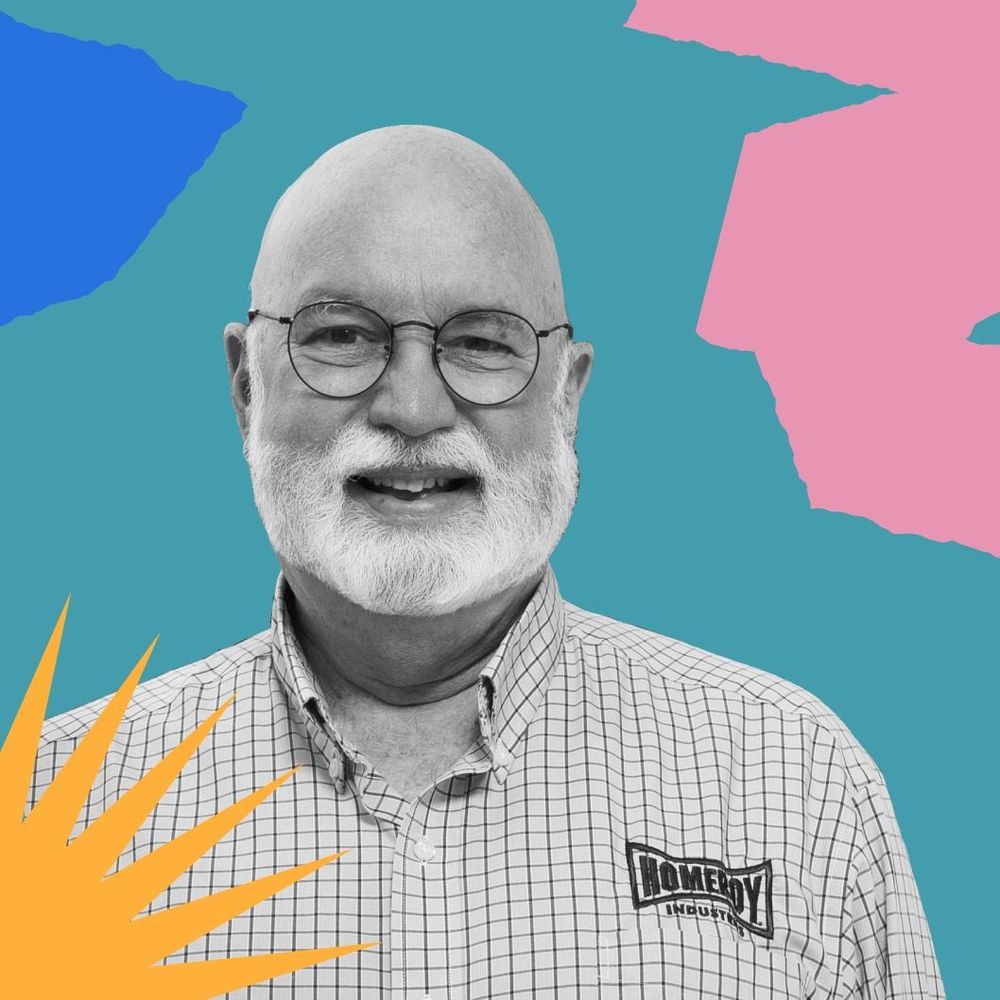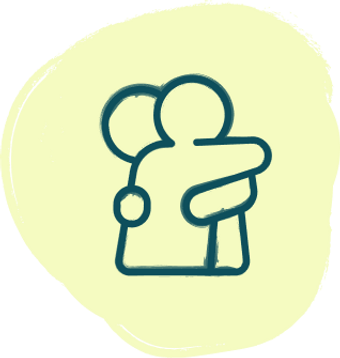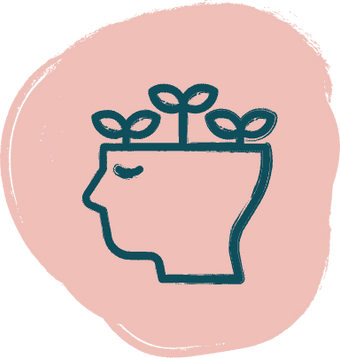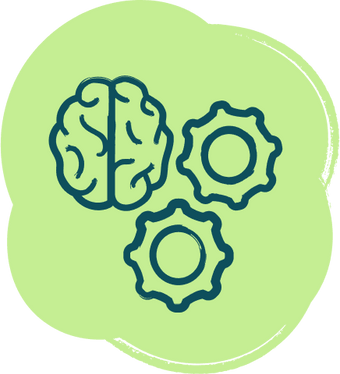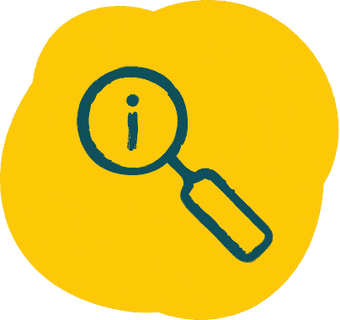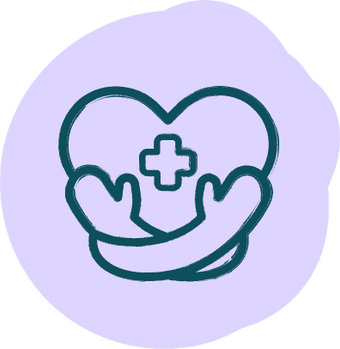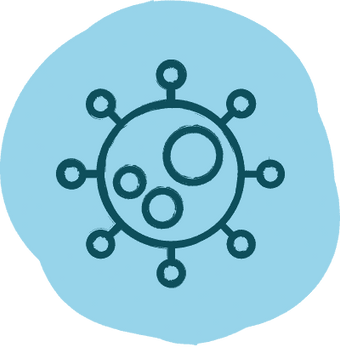- Vivek Murthy
Hello and welcome to House Calls. I'm Vivek Murthy, and I have the honor of serving as U.S. Surgeon General. I'd like to introduce you to Jon Kabat-Zinn, pioneer of mindfulness-based stress reduction. Jon is also a meditation teacher, author, professor and a dear friend. We believe conversations can be healing. And today, we'll be talking about finding peace. This conversation serves as a guide to how we can find ways to cope with the daily stressors of life. This is part one of a two-part conversation. Hi everyone. Thanks for tuning in to House Calls. I'm excited to share this conversation with mindfulness pioneer Jon Kabat-Zinn. Jon is a doctor, a Buddhist, a bestselling author and a leader in the field and practice of mindfulness. He is professor of medicine emeritus at the University of Massachusetts Medical School, where he founded its world renowned Mindfulness-Based Stress Reduction Clinic and the Center for Mindfulness in Medicine, Health Care and Society. Jon and I have known each other for many years, connecting through our practice of meditation and our shared interest in mental health and emotional well-being. I wanted to speak with Jon because our country is facing a major mental health crisis. As Surgeon General, I've seen this up close. I've met with kids and adults across America who, like so many of us, are living through anxiety, loneliness, and stress. The pandemic has only added to our emotional and psychological burden. Jon and I recorded this conversation in November 2021, so there are some references to that stage of the pandemic in this conversation. But what I want to share is how Jon's work offers simple ways to reduce stress and find ways to cope with uncertainty. One of the things I love about Jon is he can be both theoretical and practical, and in this conversation he is both. He walks us through ways we can breathe, through stress responses while explaining why this works. Along the way, we talk about the impact of technology befriending ourselves, and how to be alone without being lonely. As I mentioned, Jon and I are friends, so this conversation did get pretty long. That's why it's split into two parts. But stick with us. It's worth it. By the time Jon closes with a guided meditation, I hope you'll find the same sense of peace and solace that I experienced in this episode of House Calls. Before we jump into our conversation, I want us just to settle ourselves for this moment, and I would invite you to just to sit where you are, just to feel your body in your chair or at your desk, wherever you may be, to close your eyes gently and to take a deep breath, as we ground ourselves for the conversation we're about to have. Just let your mind just relax for the moment. So many things that go through our mind each day. Items on our to do list. Things that come up at work and at home. But for the brief time that we're together, give yourself permission to let those go gently. Give yourself this space to just listen, to absorb, also reflect on how this last 18 months has been for you, to reflect on what you've learned and also what you've lost, what you realize you want in the life that comes ahead. Open your eyes. And from this place of being more centered and being together, let's begin this conversation. Jon, you have done so much in your life. I think that in my mind has prepared you in that sense for this moment, this moment of chaos and uncertainty, but also, I think, made you such an ideal person for us to hear from. And I know that during the pandemic, you did something really quite extraordinary. You offered daily meditations for people across the country, and you did that every day for nearly three months as an extraordinary act of service. And I'm curious if you could share with us a little bit about the thinking that went into doing that.
- Jon Kabat-Zinn
Well, thanks for asking that question, Vivek. And I just want to say, before I launch into a response to that, that it's it's an absolute pleasure to be having this conversation with you. And I don't know whether this is true, but I'm imagining that what we just experienced is probably the first time that a Surgeon General of the United States has done a guided meditation for the public. And I think that it augers something extremely interesting and important for things to come as we as we commit ourselves in some sense, to healing the body of the country, the body politic and all of the dissipative forces that are at play nowadays that are causing so much, you know, harm on top of the 18, 20 months of the the COVID pandemic. And so it really is a seminal moment that is unlike any in history, because we are so in a completely new era for so many different reasons. And so I want to just acknowledge that for you to be here and guiding us in in a meditation is really some kind of a significant sea change in how we understand what the tools are at our disposal for for healing both ourselves individually and and as a nation, and for that matter, in the larger domain as a planet, because there are so many different "dis-ease" processes, I might say, that are at work on every conceivable level. And we have to handle them all simultaneously, it appears. That said, as people who've been for decades practicing on meditation retreats, we saw the pandemic as a kind of an enforced meditation retreat, where if you have to be home, at least it might be valuable to get a little instruction for how to be on a retreat, where your outer activities are constrained to an enormous degree. We decided to just say, why not just offer daily meditation practice so we could all at least connect for one hour during the the work week. But I think that the basic message got through to thousands and thousands of people who basically felt that they could actually use this time as a way to develop deep aspects of themselves in the face of all the stress, pain, illness, death and loss that was inevitably going to be part of this world wide global experience. So that's that's, you know, sort of a thumbnail sketch, if you will, of of my motivation for doing that. In turn, if you don't mind, I'd like to ask you, being the top doctor of the United States, what has your experience been of having this pandemic just arise out of nowhere, and here you are in the driver's seat, so to speak, as Surgeon General, and I don't know if it's true that you're the first Surgeon General who has served in two different, administrations in the kind of way that you have, I really feel like I took tremendous solace just to know that you were the Surgeon General of the United States at this particular point. So how did it strike you that, uh-oh, you’re, in some sense, front and center in terms of the need to tend to the patient being the entire population of the United States.
- Vivek Murthy
Well Jon, it was it was a very complicated experience in many ways. You know, when the pandemic began, I was a civilian that was outside of government. I finished my stint as Surgeon General for the first time around, several years prior to that. And it was a strange experience. You know, in some ways I was reminded of that of the Ebola outbreak in West Africa, then the Zika virus crisis that we had when I was Surgeon General, and how we dealt with that and all of those memories came flooding back. This is on a whole different scale. And I found myself wishing that I could do more than I was able to do as a as a civilian on the outside. But, you know, when I was given the privilege and the honor to serve again by President Biden, it was a big decision, but it was not a hard decision to say yes. And and the reasons actually were really two. One is that, you know, when I was growing up, my parents had always taught us not so much through their words but more so through their actions, that that we each have an obligation to do what we can to serve our community, especially during times of crisis. In fact, they had named me after a Hindu monk named Vivekananda, whose sort of philosophy and approach to spirituality was one that envisioned that we serve through our service, that we connect with God and with the Divine, through the service that we render to the people in our communities. And that sort of act of, sort of practice of spirituality that involved an engagement in the community was something that I was always taught about. My mother would always tell me as a child, like, we named you after Vivekananda because we want you to live up to the ideals that he had. Now, I felt some pressure when I heard that as a child. I was like, "Oh my gosh how am I going to do that?" But I was remembering that lesson that my parents had taught me over the years through their own example, that when the community is in crisis, each of us has to step up and serve. The other thing I was thinking about, Jon, is my kids, because I knew this is going to be a moment that our kids and the future generations read about and study in the history books for years to come. And at some point I know my kids when they're a bit older, they're three and five right now, but at some point they are going to ask me and my wife, "Mama and Papa, what did you do to help during this time, that was such a big crisis that we're reading about in the history books. You were alive. What did you do?" And I want to be able to tell them that we did everything that we possibly could to help not only them, the children like them. And so that's why, you know, I came back into government. That's why I'm serving as Surgeon General again now. And I'll just lastly say it's an enormous responsibility, but an enormous privilege to, you know, I think that to be able to help in whatever way I can to me gives me some satisfaction. But what is on my mind a lot, Jon, is not just getting cases down and preventing people from, you know, from suffering the health and non-health related consequences of this pandemic, but what's on my mind is also the future, recognizing that we have profound challenges with our mental health and well-being that have surfaced yet again during this pandemic. And we've seen so many folks struggle with anxiety and with depression and with loneliness and with other mental health concerns. And the question I have is how are we really building the foundation for the deeper healing that both our country and individuals in society need and a need for healing that was, frankly, there before the pandemic, but one which the pandemic has really underscored. And we have to ask a deeper question "What can we do to create more healing in people's lives, more connection between individuals and a society that has a stronger foundation," that it can then use to take on some of the big challenges that we face, whether it's the next pandemic, the health care inequities that we still face in this country, climate change or other challenges.
- Jon Kabat-Zinn
Well, you know, I'm afraid that in order to actually engage with that challenge in an appropriate way, that we're going to have to take some very radical steps, but that there is a certain kind of historical arc that can assure us that they may be wise and beneficial steps to take. And that is, in the first instance, to actually befriend ourselves as individuals and to actually know the full repertoire of what the opportunity of being alive really brings to it. And I often feel that somehow we don't. And we've developed the model of medicine and health care that's kind of like an auto mechanics model. And even though everybody knows that's not a good model that we need to in some sense, just live our lives. And then when our our sort of body and breaks down or our emotional sort of components break down, then we get repaired, so to speak, and put back on the road. This is a really profoundly wrong view of the biology of what it means to be human. So on a fundamental level, we are self-healing organisms, not just when we get cut or when a bone needs healing, but at every level of our humanity. The more we can actually get in touch with the full repertoire of our inheritance, so to speak, our biological inheritance, the more we can actually live our way towards a full, satisfying life. And then, of course, we're not monads. We don't live in isolation. So a large element of that is actually recognizing the profound nature of our interconnectedness as beings, not just with each other, but with nature, with the planet, with the atmosphere. I mean, we're always one breath away from not being here, and yet we never kind of really honor the fact that we need the air in order to do that, we need the water in order to do that. And and so I feel like one element of the future, as far as I can see, is actually igniting passion in the body politic in all of us. No matter where we are, on whatever spectrum you want to put us on and recognize our common humanity and the kind of geometry of being alive that invites us to actually take care of and optimize the full dimensionality of that and then let that also happen at a social level. You came out with a book right at the beginning of the pandemic called Together. This I was very moved by when I read it because it's actually a real plea for how important it is it is for us to not succumb to loneliness or isolation or a sense of contraction, or even into groups that disrespect each other and disregard each other. That's a form of dis-ease that leads out over time to outright disease. So I would love to see us as a country be able to understand what it would mean to heal at the level of ourselves as individuals from this pandemic and from everything else that's been going on, and then work together to find new ways to actually strengthen the homeostasis of the country itself and its role in the world in ways that are true to every level of which we understand human beings, including Vivekananda's teachings, which I came across early in my own life and was incredibly inspired by that particular teacher in the way he articulated things. So, you know, that's a tall order. And we can talk a lot more about what the role of the Surgeon General might be in that regard. And just to say, all of my work over the past 40 years was inspired by the Surgeon General's report of of 1979 called Healthy People that when I read it it kind of ignited some kind of inspiration and also permission-giving to actually cultivate a program that would catch people falling through the cracks at a hospital and medicine and challenge them to do something for themselves that no one else on the planet could do for them as a collaboration with medicine. But if the person the individual person doesn't do his or her share, then it becomes a kind of auto mechanics model of medicine that doesn't work very well.
- Vivek Murthy
I did not know that about the Surgeon General's report in '79 inspiring you, Jon. I learned something new here. That that's amazing. I hadn't realized that.
- Jon Kabat-Zinn
I have it right here. And the sentence, you know that actually Califano (then Secretary of Health, Education, and Welfare Joseph Califano) when he was introducing it. I've got it all whited out, but it says “Let me dwell first on the matter of individual discipline and will,” and he and he just goes on to speak directly to American citizens. “You, the individual, can do more for your own health and well-being than any doctor, any hospital, any drug, any exotic medical device." That was in 1979. Now, of course, we know that while that's still true, we also need each other in a way that is inescapable and that has a biology to it as well. So mindfulness in America, to me, or this meditative embrace of all of this, is not some kind of esoteric, weird engagement, but actually a prescription for how to enter into the ills of our country on a multiplicity of levels that has the potential to actually deliver on what that Surgeon General's report was pointing to. And every one since then has been pointing to, and we can do it together collaboratively. That's kind of the way I see it.
- Vivek Murthy
I couldn't agree more. And in fact, you know, there's something you said, you know, that was very powerful. You talked about the fact that we need a really profound sense of healing during this time and a deep level. And when I think about contemplative practices, many of the teachings that you have brought to the world over the last many years, one of the words that I associate with those practices is peace. A sense of peace and just groundedness and being settled and calm. And it's striking to me now because when I talk to people across the country, one of the things that I find folks say is elusive in their life is peace. They look at the world around them. They see the, all the, chaos wrought by COVID 19, but they also look at the uncertainty that's ahead. They look at some of the big decisions So I'm curious if you have any advice, John, for people who are feeling that anxiety, who are looking for peace. What are some approaches they could take during their life right now to to find that peace, which feels so elusive?
- Jon Kabat-Zinn
Well, I want to be very sensitive to the fact that different people will find their own unique ways into this. But I would point out that we all have an intrinsic capacity to actually be at home in our own skins, at least in the present moment, because the present moment is the only moment any of us are ever alive in. And so if we can learn to befriend ourselves in the present moment and give ourselves, so to speak, the embrace or a hug of recognition and acceptance, then we can actually begin to understand that our thoughts and emotions, no matter how terrifying they are, are not the truth of things. And we can find a place of equanimity and clarity and calmness which will allow us to actually optimize our life choices and our decisions moment by moment, to actually be in a condition of balance, as opposed to being always off balance and therefore driven by anxiety or depression or stress reactivity of one kind, which of course, as soon as we're in that state, our kids know it. Our partner knows it. Everybody knows it. We often don't know it. So what mindfulness actually offers us is a way to actually, as I was saying, befriend and come to know ourselves on a whole other level, not so much through thinking, but through this other what I've taken to calling a superpower that we're born with. So nobody is missing this one. But we just have to learn to connect with it a little bit more. And that is called human awareness. And when we can hold even anxiety and depression and fear and concern about the future in awareness that gives us a whole other dimension in which to be in wiser relationship to it and make choices that actually tilt the situation in the direction of greater calm and wellbeing as opposed to increasing stress reactivity. It's a skill. You can learn that and you can exercise that muscle and you do it through practice. So every untoward event or stressful moment in your day becomes an opportunity for learning, for growing, for healing, and for transformation. If you are willing to exercise this muscle and it's very simple guided meditation instructions to do it. Any time you get caught, notice you're caught. Notice that they're just thoughts or emotions or contractions in the body, and then notice that your awareness isn't contracted and isn't angry, isn't frightened. And then, okay, so now how are you going to deal with this moment? And so that's a really profound gift that we can give ourselves. And that's what we mean by embodied meditation practice or embodied awareness in everyday life. It's a profound meditation practice, and 40 years ago that was revolutionary. Nowadays it's like so mainstream that everybody actually knows that millions and millions of Americans are actually practicing in one way or another. And even more if you throw in mindful Hatha yoga. I mean, it's just enormous. So there's no one door into this room. Any door that works for you is a good door in.
- Vivek Murthy
And it's almost disarming, like this simplicity of awareness, like you're saying, to bring so much to our state of mind and to invite peace sort of into our in our lives. Not that it's easy to practice. It can be challenging. But, you know, I think so many times that one of the great modern day challenges we have to our being present and being aware is a constant bombardment of information, particularly through our devices that many of us, you know, live with. And that's not to say that we're going back to a totally pre-technology era where you don't have cell phones or anything like that. But I'm curious if, you know, when you think about people who are trying to maintain that presence and awareness despite that environment, that information environment, which is so just ramped up, if you will, and where information is coming at us through so many different channels. Do you have any advice for how people should think about technology in their lives and how they should be able to create that space for awareness despite their use of tech?
- Jon Kabat-Zinn
That's a very profound question, and I think it's one that's facing humanity. And I would hesitate to give any kind of definitive answer, in part because of my age, you know. So I actually experienced an analog world, the people who are now what are called digital natives in some sense have never experienced the non-digitized analog world. And so I feel like just as with the meditation practice, one size will not fit all, that everybody in some sense has to decide how am I going to be in relationship with this supercomputer that is program to keep me addicted and seduced and my attention always going back to that? Well, you can use a meditative mindfulness strategy to actually work with your phone, noticing, for instance, how many times a day does the thought arise in your mind, "I've got to check my this or that, my notifications, my, you know, whatever I've got to check?" And then instead of checking, check with yourself, check with your breath, check with your body for a moment and ask yourself, is that even true? Or am I just addicted to knowing if there's something more exciting happening out there than the present moment? If you were not able to breathe in this moment for whatever reason, let's say you were drowning. You would not want to check your phone. You would not have the impulse to check your phone. You would want to know the only thing you would want in your life would be this next breath. The irony is that we pay no attention to the breath unless we're drowning or choking. But what if we actually realized that this moment is incredibly precious and it's also already full? And then when the mind wants to fill it up with other stuff that's not necessarily beneficial to either the mind or the body or even social connectedness. There's so much toxicity as I don't have to tell you on social media nowadays. I mean, the toxicity that nobody imagined we could actually generate at that kind of level, that's undermining all of our institutions and, you know, sort of our values as a society. So we have to learn how to inhabit our analog bodies and minds and lives while we still have the chance before the next generation comes in which will be, you know, of the supercomputers and so forth, which, you know, they say already the algorithms know us better than we know ourselves. So we do have to develop that way of knowing ourselves. On the other hand, you can't say, well, look, we won't have this technology that's, you know, not going to happen. So children's minds and at every level, this is going to have to be sort of inquired into and negotiated at every level of the family and society so that we don't actually turn ourselves into automatons. I mean, we're just like geniuses at creating this stuff, but not so much geniuses at understanding how to live at the interface between the analog and the digital. We are analog human beings and I think we need to ultimately learn how to inhabit our analog nature before it becomes so threatened that we lose touch with what it means to be human.
- Vivek Murthy
We're going to stop there for now. We'll continue with the second part of our conversation with Jon Kabat-Zinn on our next episode of House Calls. I hope you'll join us.
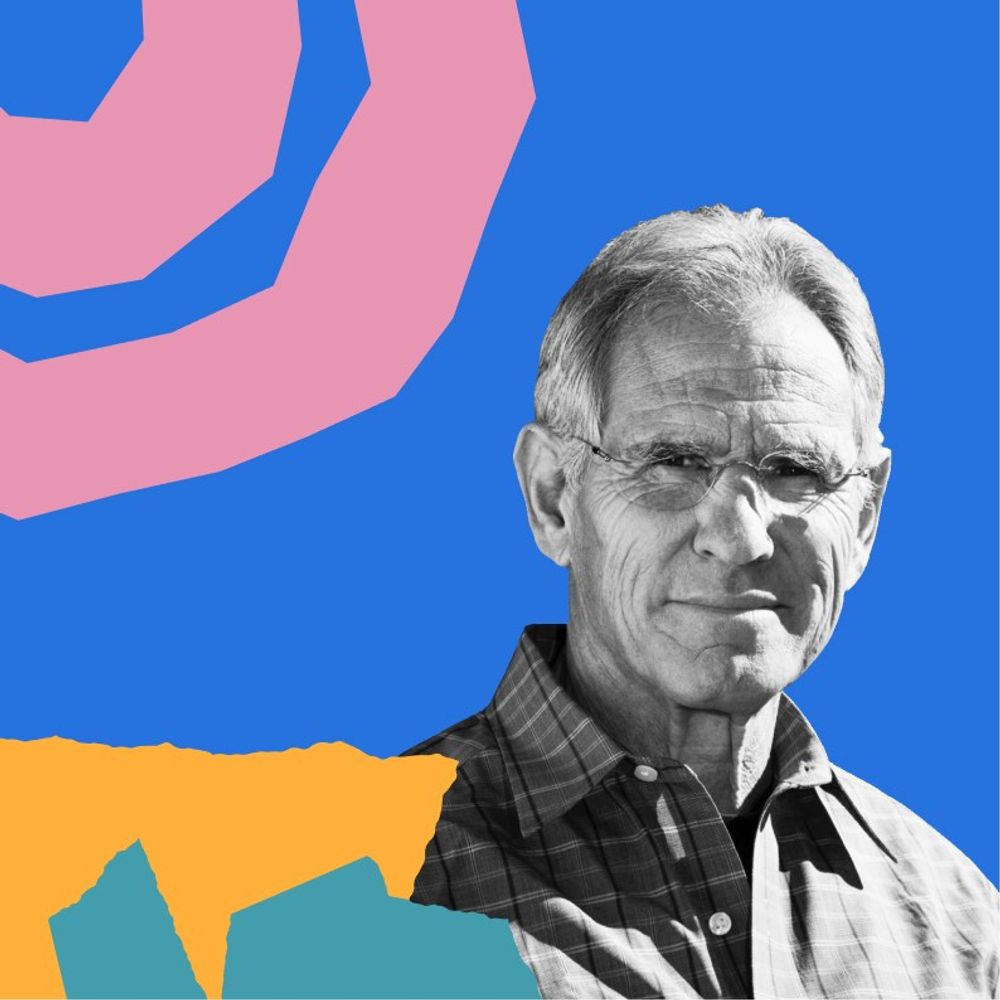
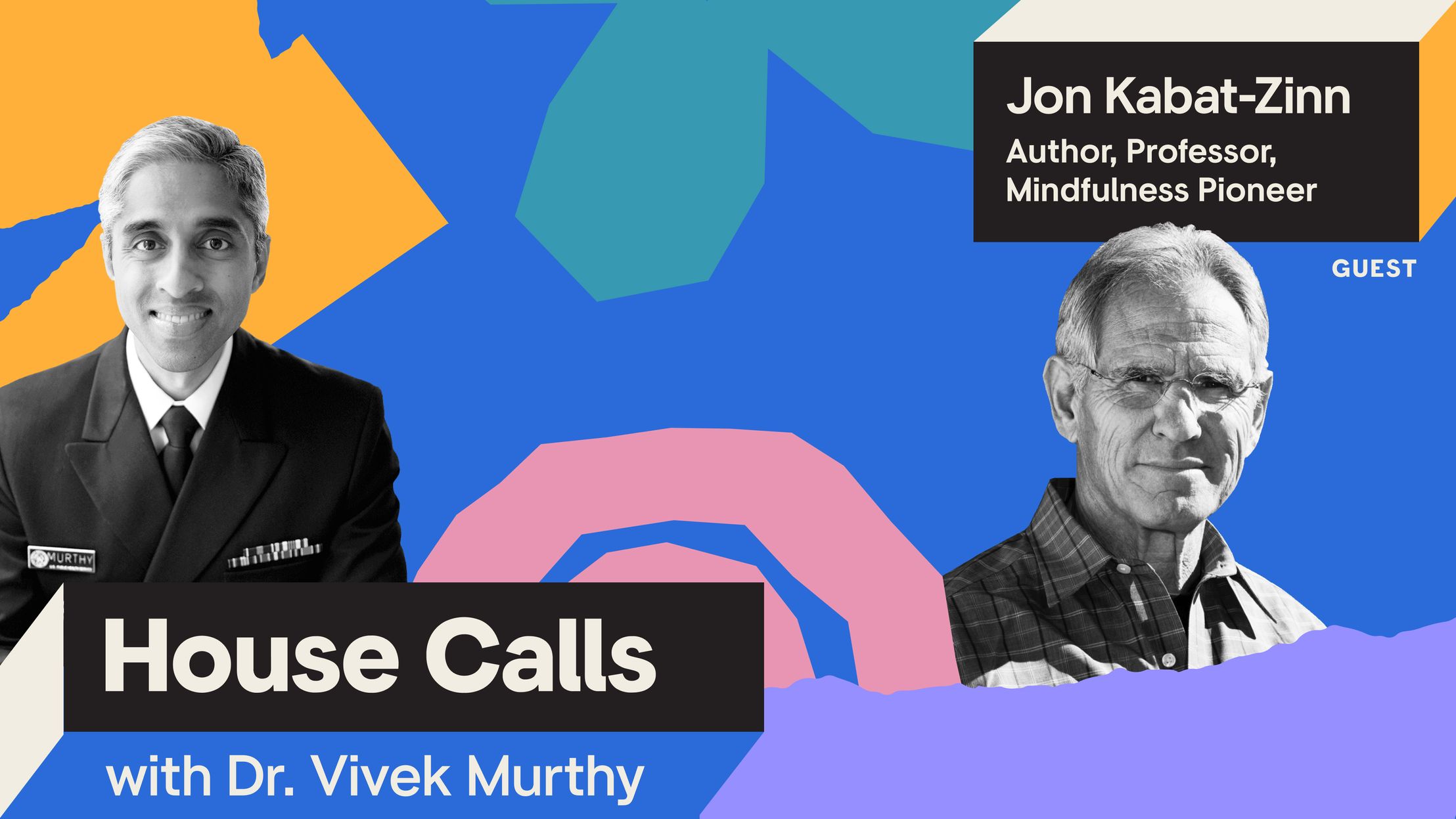
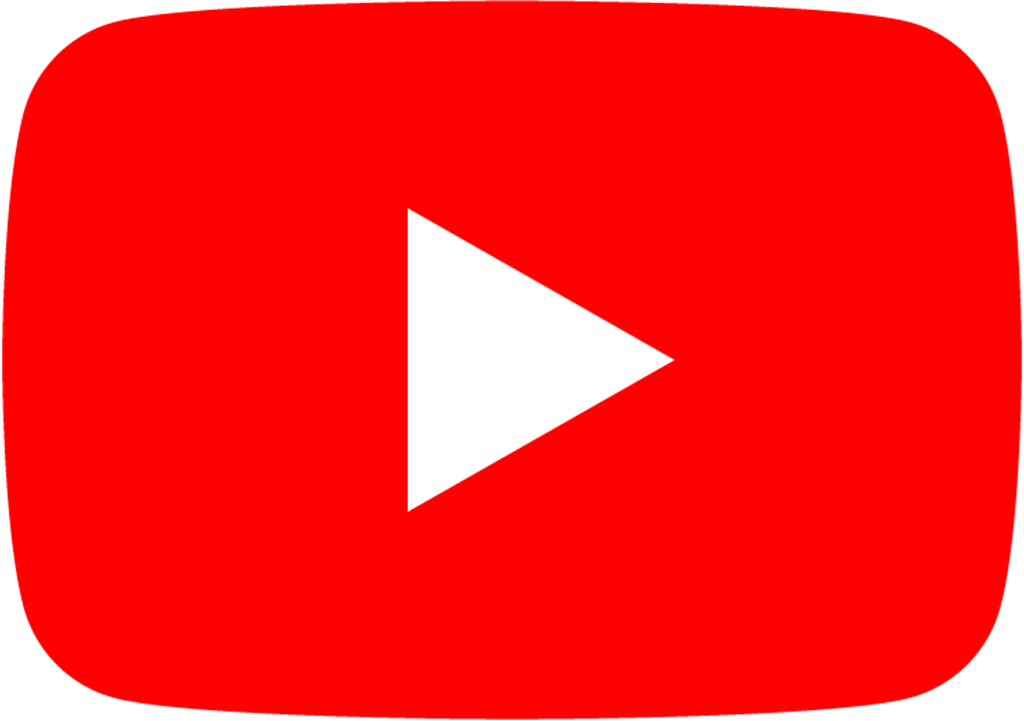 Youtube
Youtube
